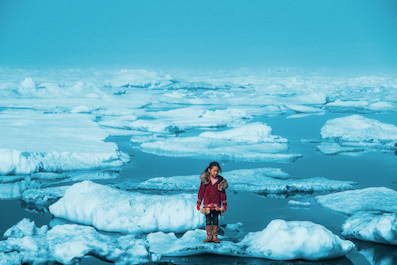 Cleanzine: your weekly cleaning and hygiene industry newsletter 25th April 2024 Issue no. 1111
Cleanzine: your weekly cleaning and hygiene industry newsletter 25th April 2024 Issue no. 1111
Your industry news - first
The original and best - for over 20 years!
We strongly recommend viewing Cleanzine full size in your web browser. Click our masthead above to visit our website version.
Nearly 600 million children will live in areas with extremely limited water resources by 2040
 Nearly 600 million children - or one in four children worldwide - will be living in areas with extremely limited water resources by 2040, according to a UNICEF report released yesterday - World Water Day.
Nearly 600 million children - or one in four children worldwide - will be living in areas with extremely limited water resources by 2040, according to a UNICEF report released yesterday - World Water Day.
'Thirsting for a Future: Water and children in a changing climate', looks at the threats to children's lives and wellbeing caused by depleted sources of safe water and the ways climate change will intensify these risks in coming years.
According to the report, 663 million people lack access to clean water, while 36 countries are currently facing extremely high levels of water stress, which occurs when demand for water far exceeds the renewable supply available. Warmer temperatures, rising sea levels, increased floods, droughts and melting ice affect the quality and availability of water as well as sanitation systems.
Population growth, increased water consumption and higher demand for water largely due to industrialisation and urbanisation are draining water resources worldwide. Conflicts in many parts of the world also threaten children's access to safe water.
All of these factors force children to use unsafe water, which exposes them to potentially deadly diseases like cholera and diarrhoea. Many children in drought-affected areas miss out on a chance to go to school because of the time it takes to collect water. Girls are especially vulnerable to attack during these times.
"Water is elemental; without it, nothing can grow," says UNICEF executive director Anthony Lake. "But around the world, millions of children lack access to safe water - endangering their lives, undermining their health, and jeopardising their futures. This crisis will only grow unless we take collective action now,"
The poorest and most vulnerable children will be most impacted by an increase in water stress, the report says, as millions of them already live in areas with low access to safe water and sanitation.
The report also notes that:
* Up to 663 million people globally do not have access to adequate water sources and 946 million people practice open defecation.
* More than 800 children under the age of five die every day from diarrhoea linked to inadequate water, sanitation and hygiene.
* Globally, women and girls spend 200 million hours collecting water every day.
The most urgent task ahead is for world governments and others to act now to curb emissions and prioritise renewable and sustainable energy sources. At the same time, we must also deal with the impacts of climate change on water sources, UNICEF says. The report concludes with a series of recommendations that can help curb the impact of climate change on the lives of children. Such measures include:
* Governments need to plan for changes in water availability and demand in the coming years. Above all, this means prioritizing the most vulnerable children's access to safe water above other water needs to maximize social and health outcomes.
* Climate risks should be integrated into all water and sanitation-related policies and services, and investments should target high-risk populations.
* Businesses need to work with communities to prevent contamination and depletion of safe water sources.
* Communities themselves should explore ways to diversify water sources and to increase their capacity to store water safely.
"Clean, safe water is essential for children to grow and develop into healthy and productive global citizens," says UNICEF Canada president and CEO David Morley. "Yet today, we're failing a quarter of the world's children by not ensuring the most basic component of their wellbeing. Clean water affects everything from a child's health to their education and to their safety. Providing access to clean, safe water must quickly become a global priority before it's too late.
"We commend Canada's commitment of $2.65 billion to address the adverse effects of climate change in developing countries.
"The government must now ensure that their investments reach the most vulnerable communities in the least developed countries, particularly children."
23rd March 2017







